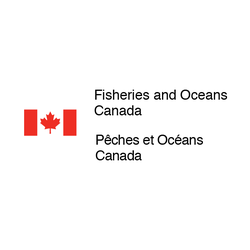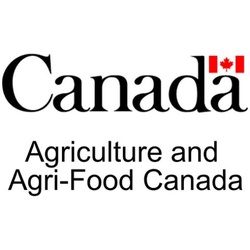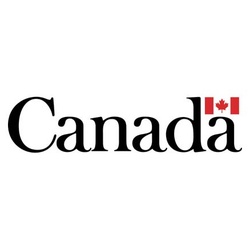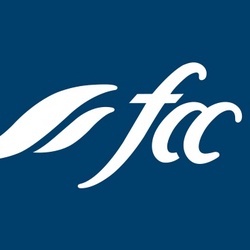
Closed
Aboriginal Funds For Species At Risk (AFSAR)
Last Update: October 27, 2025
Canada
Supports Indigenous-led conservation of aquatic species at risk
Grant and Funding
At a glance
Funding available
Financing goals
Raise awareness and mobilize the public
Increasing community impact
Develop employee skills
See more
Eligible Funding
- Minimum amount : 10,000 $
Timeline
- Receipt of requests is now closed
Eligible candidates
Eligible Industries
- Agriculture, forestry, fishing and hunting
Location
- Canada
Legal structures
- Financial cooperative
- Non-financial cooperative
Annual revenue
- All revenue ranges
Organisation size
- All organization sizes
Audience
- Indigenous Peoples
Overview
The Aboriginal Fund for Species at Risk (AFSAR) provides up to $50,000 per project to support Indigenous-led initiatives focused on the conservation and recovery of aquatic species at risk and their habitats across Canada. Eligible activities include habitat improvement, human impact mitigation, program planning, surveys, Indigenous Knowledge documentation, and targeted outreach and education.
Activities funded
- Projects aimed at conserving and recovering aquatic species at risk and their habitats.
- Initiatives that mitigate or address threats to aquatic species at risk and their environments.
- Capacity-building activities within Indigenous communities to lead aquatic species at risk stewardship and implement relevant strategies.
- Partnership-based projects fostering collaboration and knowledge sharing among Indigenous organizations and other stakeholders.
- Community-led projects documenting, managing, or applying Indigenous Knowledge to the protection and recovery of aquatic species at risk.
Examples of admissible projects:
$ 30,800
Documenting Indigenous Knowledge on Pacific lamprey migration routes
$ 48,000
Monitoring and mapping critical habitat for inner Bay of Fundy salmon
$ 34,000
Capacity building for aquatic stewardship in youth Indigenous leaders
$ 49,000
Reducing boat traffic impact on threatened southern resident killer whales
$ 49,500
Restoration of riparian habitats for lake sturgeon recovery
$ 48,600
Improving water quality for western silvery minnow through reed beds
Eligibility
- The applicant must be an Indigenous community or organization located in Canada; or a partner organization (Indigenous or non-Indigenous) formally mandated by an Indigenous community or organization.
- The proposed project must target the conservation and recovery of aquatic species at risk listed as Endangered, Threatened, or of Special Concern under SARA Schedule 1, or unlisted but assessed species by COSEWIC.
- The project must align with national and relevant regional priorities as outlined by the program.
- The project activities must provide direct benefit to aquatic species at risk and may take place on federal, Indigenous, provincial Crown, or private lands.
- The application must demonstrate a minimum of 20% matching contributions from non-federal sources (either cash or in-kind).
Who is eligible?
- Indigenous communities, bands, and settlements in Canada
- Indigenous associations, organizations, and societies
- District councils, chiefs’ councils, and tribal councils
- Indigenous fisheries commissions, councils, authorities, and boards
- Indigenous economic institutions, organizations, corporations, and co-operatives
- Partnerships or aggregations of Indigenous groups
- Service providers formally mandated to work with Indigenous organizations (as determined by Fisheries and Oceans Canada)
- Non-Indigenous organizations formally mandated to apply on behalf of an Indigenous community or organization (with required support letter)
Who is not eligible
- Non-Indigenous companies or organizations, unless formally mandated to apply on behalf of an Indigenous community or organization.
- Organizations without a formal partnership or clear support from an Indigenous community or organization.
- Companies or groups whose proposed projects do not directly address aquatic species at risk as defined under SARA Schedule 1 or by COSEWIC.
- Applicants who cannot provide the required minimum of 20% matching contributions from non-federal sources.
Eligible expenses
- Administrative expenses including phone, internet, office supplies, utilities, and bank fees (including GST/HST not eligible for reimbursement).
- Meeting expenses such as hall rental and supplies, as well as printing and web-related costs for outreach materials.
- Repair, maintenance, and operating expenses for equipment, facilities, vessels, and vehicles directly used in the project (non-commercial use).
- Insurance related to eligible activities within the project agreement.
- Contracted and professional service costs, including consultations and certain legal fees (excluding litigation and under specific conditions).
- Purchase, lease or rental of equipment, supplies and materials necessary for the project.
- Purchase, lease, rental, or construction of facilities in support of project activities (excluding rolling stock, wharfage, and administrative buildings).
- Office lease or rent for spaces required during the project.
- Salaries, wages and benefits for staff working specifically on the project, within stipulated guidelines.
- Training fees and expenses, including course materials, for project-related skill development.
- Travel and related expenses for staff or contracted professional service providers involved in the project.
- Official language translation costs related to the project.
Eligible geographic areas
- Freshwater and marine areas across Canada
- Federal lands
- Indigenous lands
- Provincial Crown lands
- Private lands
- Projects may take place in the following regions: Pacific, Ontario and Prairie, Quebec, Arctic, Gulf, Maritimes, and Newfoundland and Labrador
Selection criteria
- Alignment with program objectives, including national and regional priorities (60% of score).
- Strength of project and program administration, including quality and clarity of the proposal, workplan, budgets, and schedules (40% of score).
- Integration with other stewardship programs or recovery activities.
- Degree of support and partnership from local and regional stakeholders.
- Likelihood of success based on applicant experience and project deliverables.
How to apply
1
Confirm eligibility and project alignment
- Review program guidelines to ensure your project aligns with the eligibility criteria, objectives, and funding priorities
- Contact your AFSAR Regional Coordinator to confirm eligibility and obtain additional guidance if needed
2
Prepare and submit Expression of Interest
- Prepare and submit an Expression of Interest (EOI) to receive early feedback and validate alignment with regional and national priorities
- Submit the EOI before the established deadline to your AFSAR Regional Coordinator
3
Complete the application form
- Download and complete the official AFSAR Aquatic Application Form from the program website or request a copy from your Regional Coordinator
- Provide detailed descriptions of project activities, objectives, budgets, and partners
4
Submit application and documentation
- Submit your completed application and all required documentation to the appropriate AFSAR Regional Coordinator by the specified deadline
- Ensure that all sections are completed and supporting materials are included
5
Application review and waiting period
- Your application will be reviewed for eligibility, alignment with national and regional priorities, and quality of proposal
- Await notification; communication regarding results will be sent after final approval
6
Finalize agreement and initiate project
- If approved, finalize a Contribution Agreement with Fisheries and Oceans Canada
- Prepare for project start by organizing reporting, data sharing, and public acknowledgment obligations
Additional information
- Applicants are encouraged to submit an Expression of Interest to receive early feedback on their proposal’s alignment with program objectives, though this does not guarantee funding.
- Upon approval, recipients must provide species occurrence or habitat data collected during the project to relevant provincial/territorial repositories and Fisheries and Oceans Canada.
- All communication products related to the project must acknowledge the Government of Canada’s support and be approved by Fisheries and Oceans Canada prior to distribution.
- Intellectual property and Indigenous Knowledge generated from the project remain property of the recipient, though sharing terms may be negotiated in the Contribution Agreement.
Contacts
dfo.afsarqc-faepqc.mpo@dfo-mpo.gc.ca
418-573-5619
Canada
Apply to this program
Frequently Asked Questions about the Aboriginal Funds For Species At Risk (AFSAR) Program
Here are answers to the most common questions about the Aboriginal Funds For Species At Risk (AFSAR). This section explains what the program is, how much funding is available, eligibility requirements, application deadlines, and other important details to help you determine if this grant is right for your business.
What is the Aboriginal Funds For Species At Risk (AFSAR)?
Who is eligible for the Aboriginal Funds For Species At Risk (AFSAR) program?
What expenses are eligible under Aboriginal Funds For Species At Risk (AFSAR)?
Who can I contact for more information about the Aboriginal Funds For Species At Risk (AFSAR)?
Where is the Aboriginal Funds For Species At Risk (AFSAR) available?
Is the Aboriginal Funds For Species At Risk (AFSAR) a grant, loan, or tax credit?
Who are the financial supporters of the Aboriginal Funds For Species At Risk (AFSAR)?
Apply to this program
More programs like this

Researchers And FacilitiesPartnering and CollaborationGrant and FundingClosed
AgriScience Program – Clusters
Agriculture and Agri-Food Canada (AAFC)Funding for agricultural research and innovation collaboration

Grant and FundingOpen
AgriCompetitiveness Program
Agriculture and Agri-Food Canada (AAFC)Funding to build capacity in the agricultural sector

Loans and Capital investmentsOpen
Farm Equipment Financing
Farm Credit Canada (FCC)Financing for agricultural equipment

Loans and Capital investmentsOpen
Women Entrepreneur Program
Farm Credit Canada (FCC)Support for women in agriculture, agribusiness and food and beverage

Grant and FundingOpen
AgriAssurance Program – National Industry Association Component
Agriculture and Agri-Food Canada (AAFC)Supports industry-led assurance systems for Canadian agriculture exports

Grant and FundingClosed
African Swine Fever Industry Preparedness Program (ASFIPP) - Welfare Slaughter and Disposal Stream
Agriculture and Agri-Food Canada (AAFC)Supports pork sector preparedness for African swine fever emergencies

Grant and FundingClosed
AgriRisk Initiatives - Research and Development Contribution Funding
Agriculture and Agri-Food Canada (AAFC)Supports development of new agricultural risk management tools

Grant and FundingClosed
AgriRisk Initiatives - Microgrants Funding
Agriculture and Agri-Food Canada (AAFC)Supports development of innovative agricultural risk management solutions

Researchers And FacilitiesPartnering and CollaborationGrant and FundingOpen
AgriScience Program – Projects
Agriculture and Agri-Food Canada (AAFC)Supports innovative agricultural research to advance sector sustainability

Grant and FundingOpen
AgriInnovate Program
Agriculture and Agri-Food Canada (AAFC)Repayable contributions for agri-sector innovation projects
Sign up to our platform to access the Aboriginal Funds For Species At Risk (AFSAR) information sheet for free
Get access to 4,000+ programs, practical guides, personalized alerts, and an AI assistant to support your grant applications.